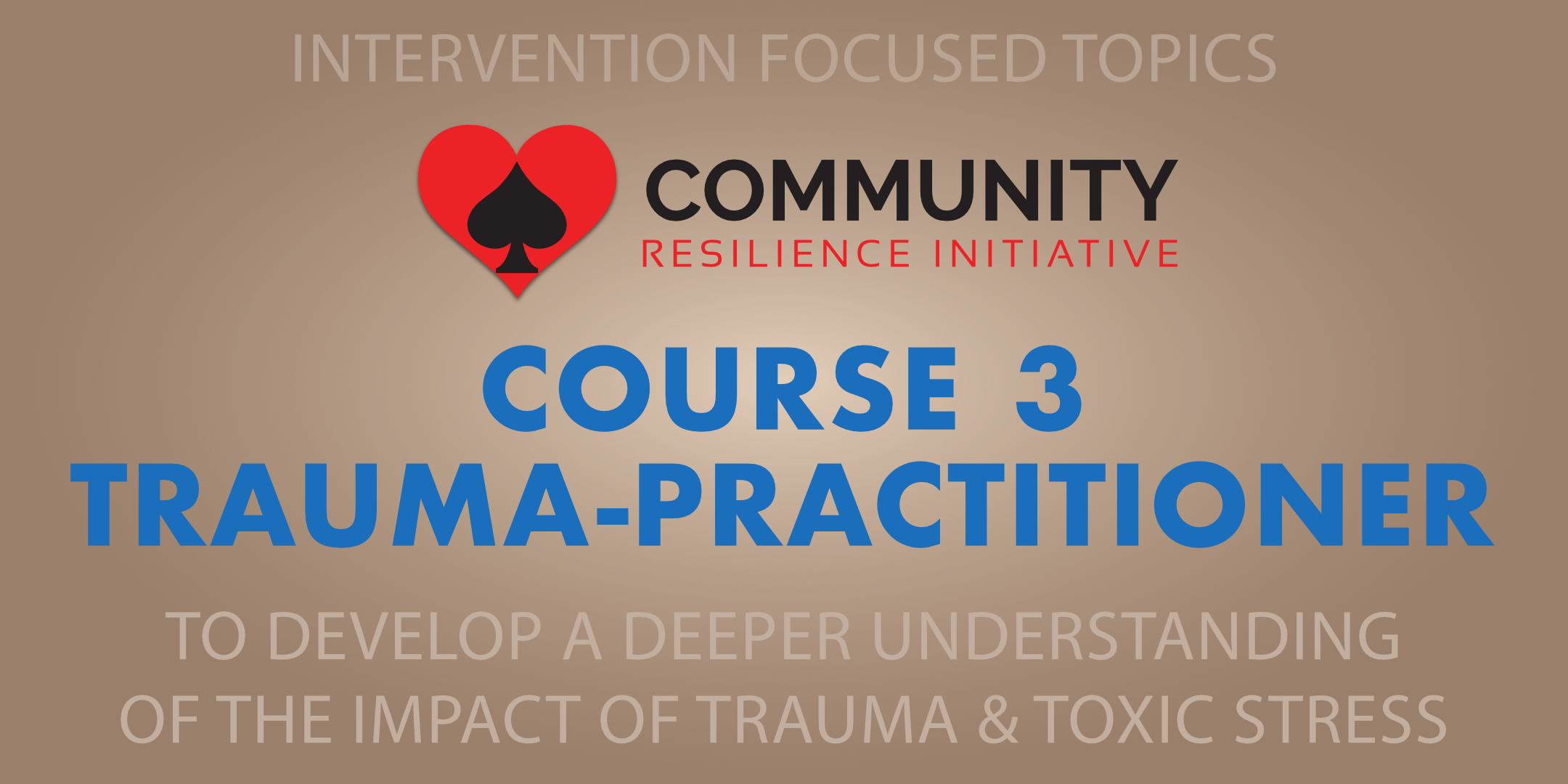Community Resilience Initiative
A dynamic LIVE WEBINAR course will help to transform your organization, classroom, or family through resilience-based strategies. Using trauma-informed principles, the course teaches individuals to systematically create the positive environment that is essential to lasting success.
Attendees will learn more than 30 strategies and promising approach utilized by some of the nation’s finest trauma-informed practitioners. This will include strategies to:
- Build a positive culture in the classroom, office, or the family
- Foster resilience through affirming communication
- Create effective regulation skills
- Deliver compassionate and empowering discipline
- Teach others about their own trauma and stress response
- Develop trauma-informed conflict resolution skills
***Attendees for Course 2 must have taken CRI’s Course 1.
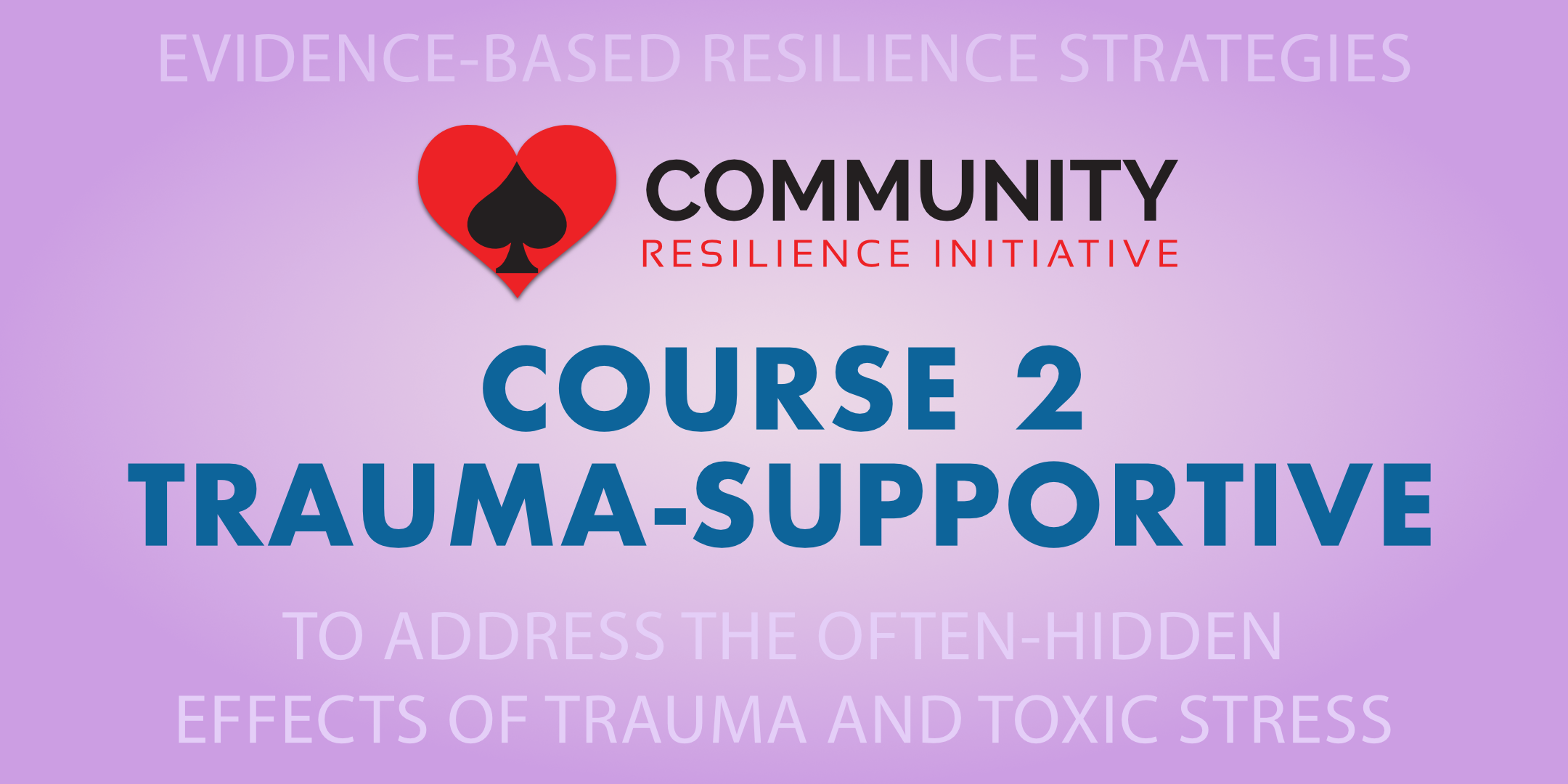
- Teacher: Rick Griffin
Course 2: Trauma-Supportive Certification Training for Trainers prepares individuals to conduct CRI’s Trauma-Supportive: Course 2 in his/her/their organization or agency. Attendees will learn to deliver material consistent with relevant science regarding resilience-based practices with universal application. They will receive training on how to use promising approaches to develop strategies to:
- Build a positive culture in the classroom, office, or the family
- Foster resilience through affirming communication
- Create effective regulation skills
- Deliver compassionate and empowering discipline
- Teach others about their own trauma and stress response
- Develop trauma-informed conflict resolution skills
***Attendees for Course 2 Trauma Supportive Training of Trainers must have taken CRI’s Course 1 and 2.
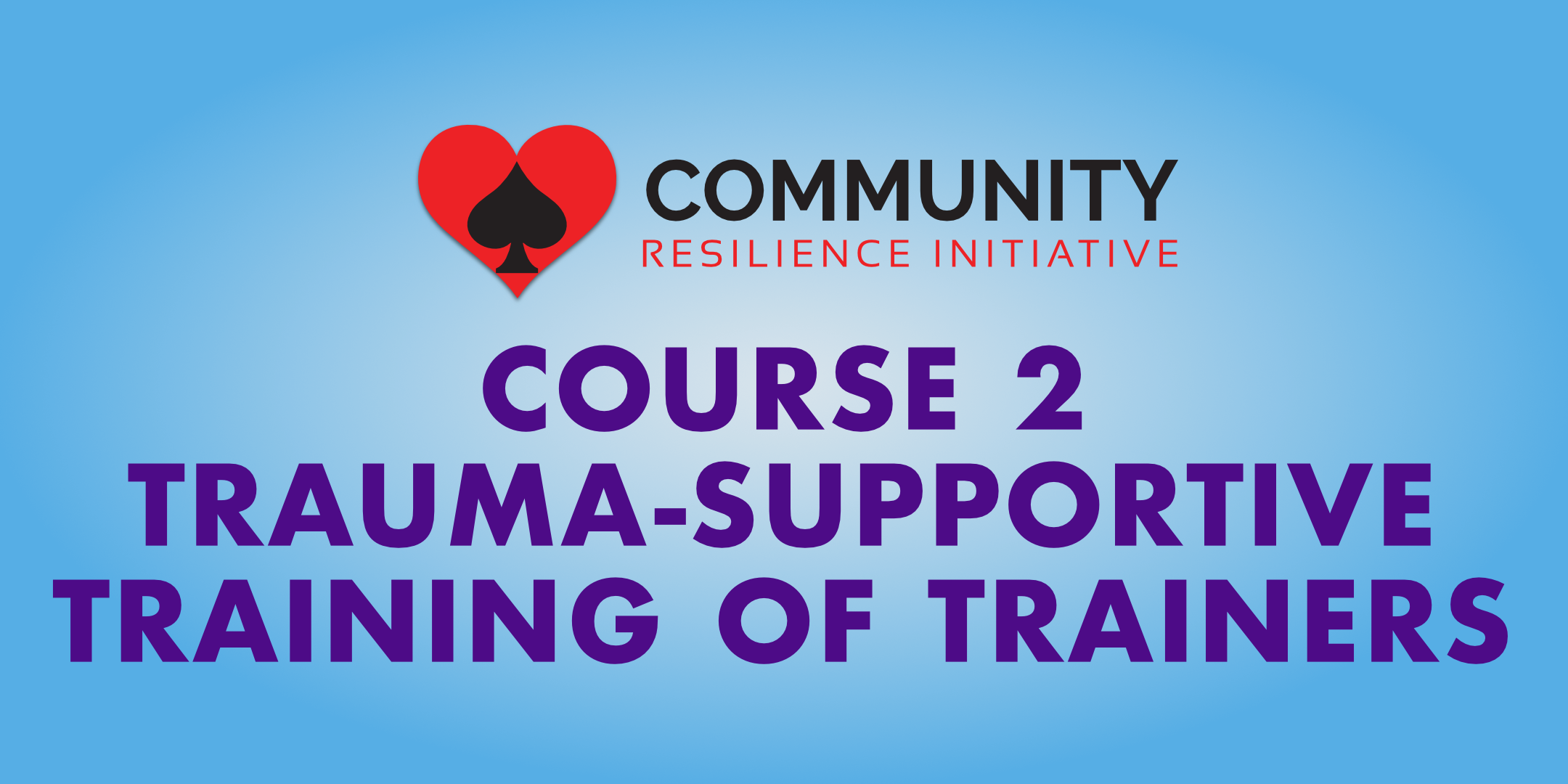
A dynamic LIVE WEBCAST course, Course 1 introduces CRI’s capacity-building framework for building resilience, KISS. Knowledge, Insight, Strategies and Structure describes our community’s learning and movement from theory to practice and how to implement evidence-based strategies into action. The training includes three groups of topics: the NEAR sciences, a cluster of emerging scientific findings in the fields of Neuroscience, Epigenetics, ACE Study, and Resilience; Beneath Behavior, the critical transition from Knowledge to Insight; and ROLES, CRI’s signature training on Recognize, Observe, Label, Elect and Solve, core strategies that take us below the tip of the proverbial iceberg. The key objective is to provide information about identifying and responding to trauma with evidence-based resilience strategies when working with an audience whose trauma history may not be known.
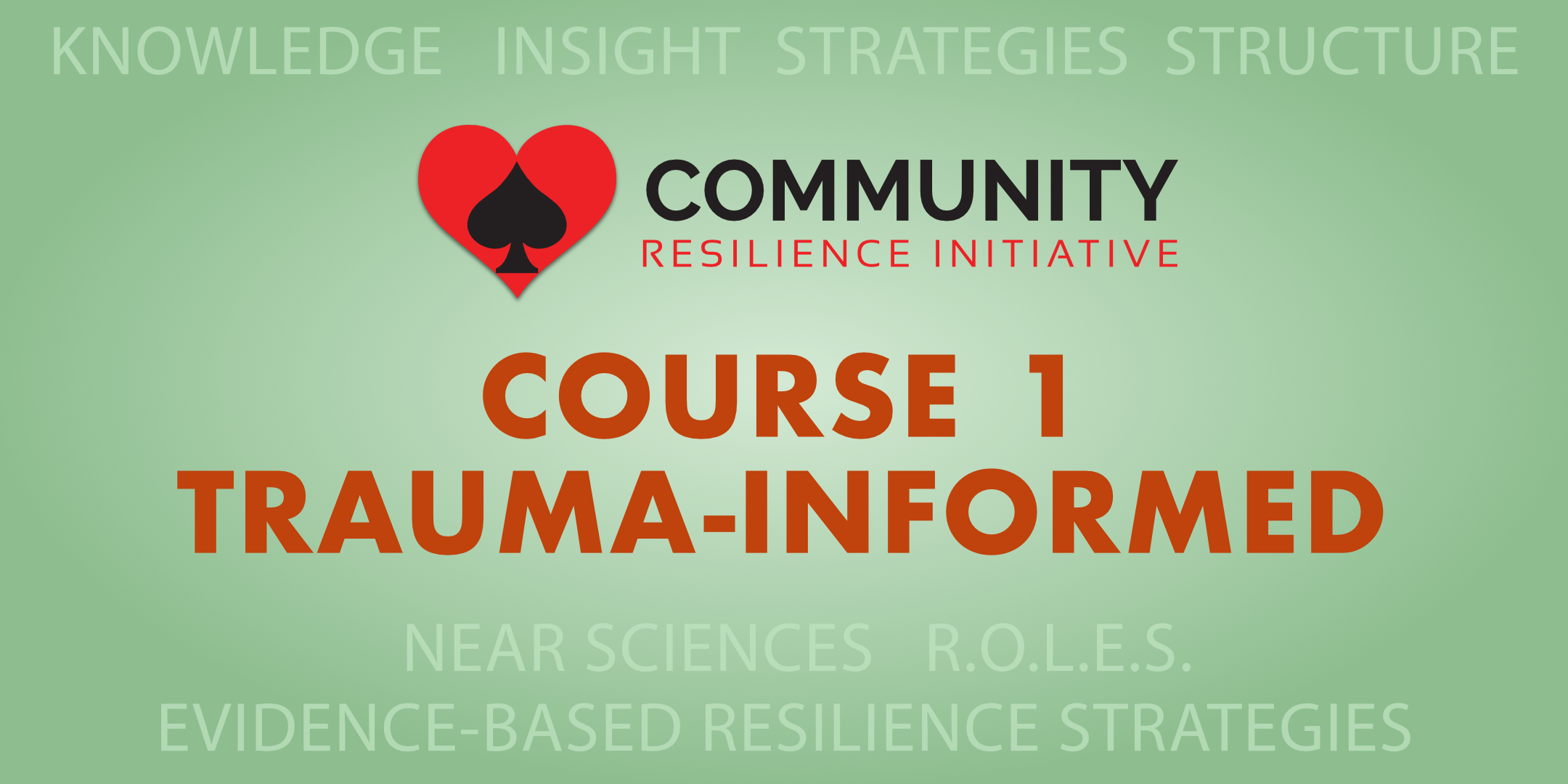
Trauma-Informed Training for Trainers prepares individuals to conduct CRI’s Trauma-Informed Certification Program, Course 1 in his or her organization or agency. Attendees learn to deliver material consistent with relevant research. Receive training tips to present everything from the N.E.A.R. Sciences, Brain States, and CRI’s signature R.O.L.E.S. Training; a research-based approach to responding to trauma. This acclaimed training for trainers also introduces individuals to ECTcellence, a trauma-informed instructional framework to guide the learning process.
***Attendees for Course 1 Trauma-Informed Training of Trainers must have taken CRI’s Course 1.
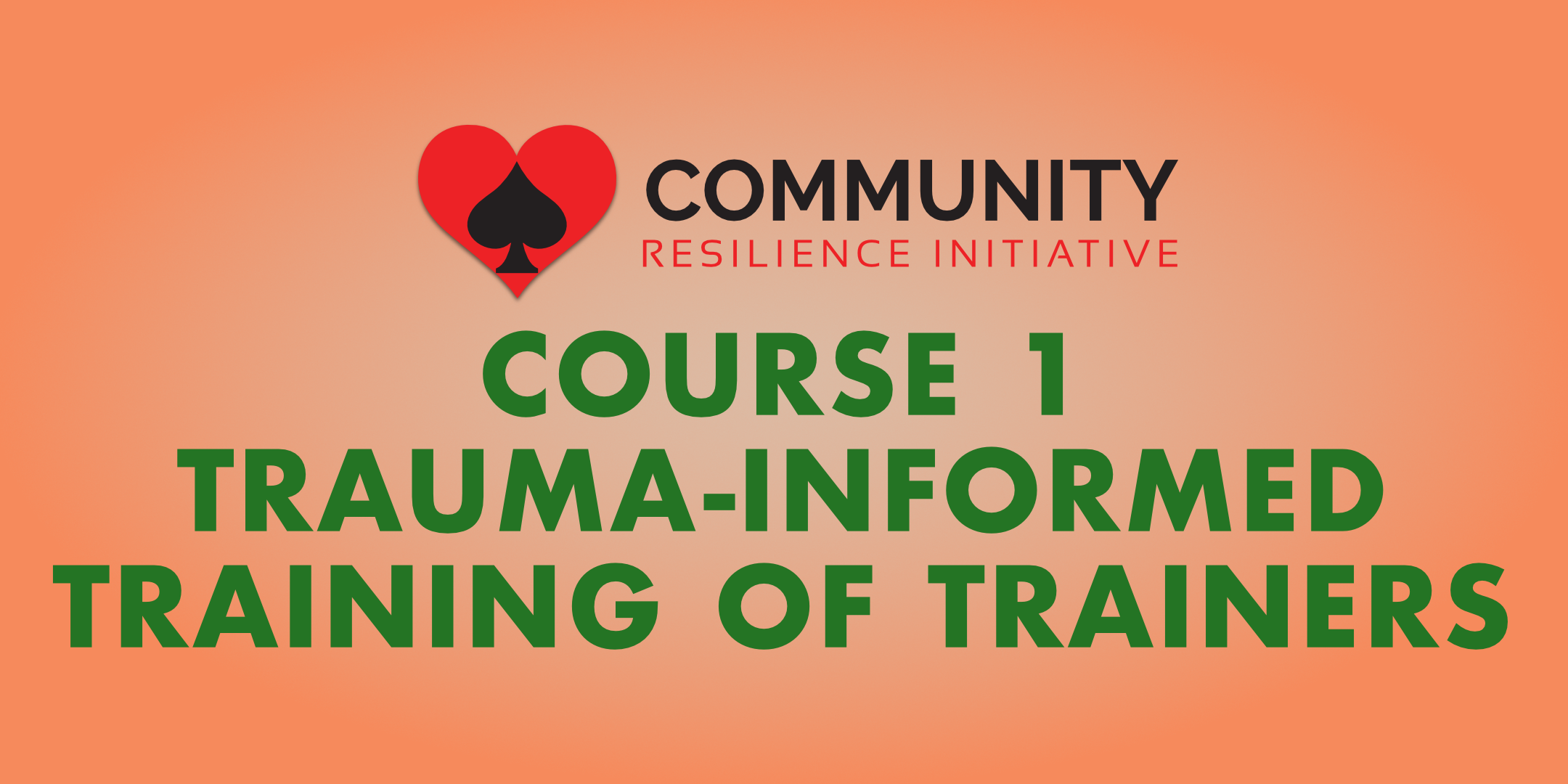
Trauma-Informed Training for Trainers prepares individuals to conduct CRI’s Trauma-Informed Certification Program, Course 1 in his or her organization or agency. Attendees learn to deliver material consistent with relevant research. Receive training tips to present everything from the N.E.A.R. Sciences, Brain States, and CRI’s signature R.O.L.E.S. Training; a research-based approach to responding to trauma. This acclaimed training for trainers also introduces individuals to ECTcellence, a trauma-informed instructional framework to guide the learning process.
***Attendees for Course 1 Trauma-Informed Training of Trainers must have taken CRI’s Course 1.

Trauma-Informed Training for Trainers prepares individuals to conduct CRI’s Trauma-Informed Certification Program, Course 1 in his or her organization or agency. Attendees learn to deliver material consistent with relevant research. Receive training tips to present everything from the N.E.A.R. Sciences, Brain States, and CRI’s signature R.O.L.E.S. Training; a research-based approach to responding to trauma. This acclaimed training for trainers also introduces individuals to ECTcellence, a trauma-informed instructional framework to guide the learning process.
***Attendees for Course 1 Trauma-Informed Training of Trainers must have taken CRI’s Course 1.

Course 3 - Trauma-Practitioners Certification Neuroscience provides a new lens through which to view challenging and disruptive behavior. This information helps us to respond more compassionately and effectively to individuals that use adaptive strategies to cope with their experiences. Being true to CRI’s K.I.S.S. framework, we believe that dealing more effectively with these individuals requires, first and foremost, the knowledge and insight into why they behave as they do. Once that it is achieved, then we employ strategies based on that knowledge and insight. This course is about those compassionate and effective intervention strategies for challenging behavior. During this four part training for trauma practitioners, participants will learn the foundation of the trauma- informed approach to understanding and helping individuals with behavioral challenges. Challenging behavior has traditionally been thought of as willful and goal oriented which has led to approaches that focus on motivating better behavior using reward and punishment programs. If you’ve tried these strategies and they haven’t worked, this course is for you! Research over the past 30 years demonstrates that a lack of crucial thinking skills results in challenging and disruptive behavior. CRI’s Course 3 focuses on helping to teach the skills these individuals lack while resolving the problems that tend to precipitate challenging behavior.
***Attendees for Course 3 must have taken CRI’s Course 1.
